
PRODUCTS
Soy lecithin liquid is a natural lecithin mixture e……
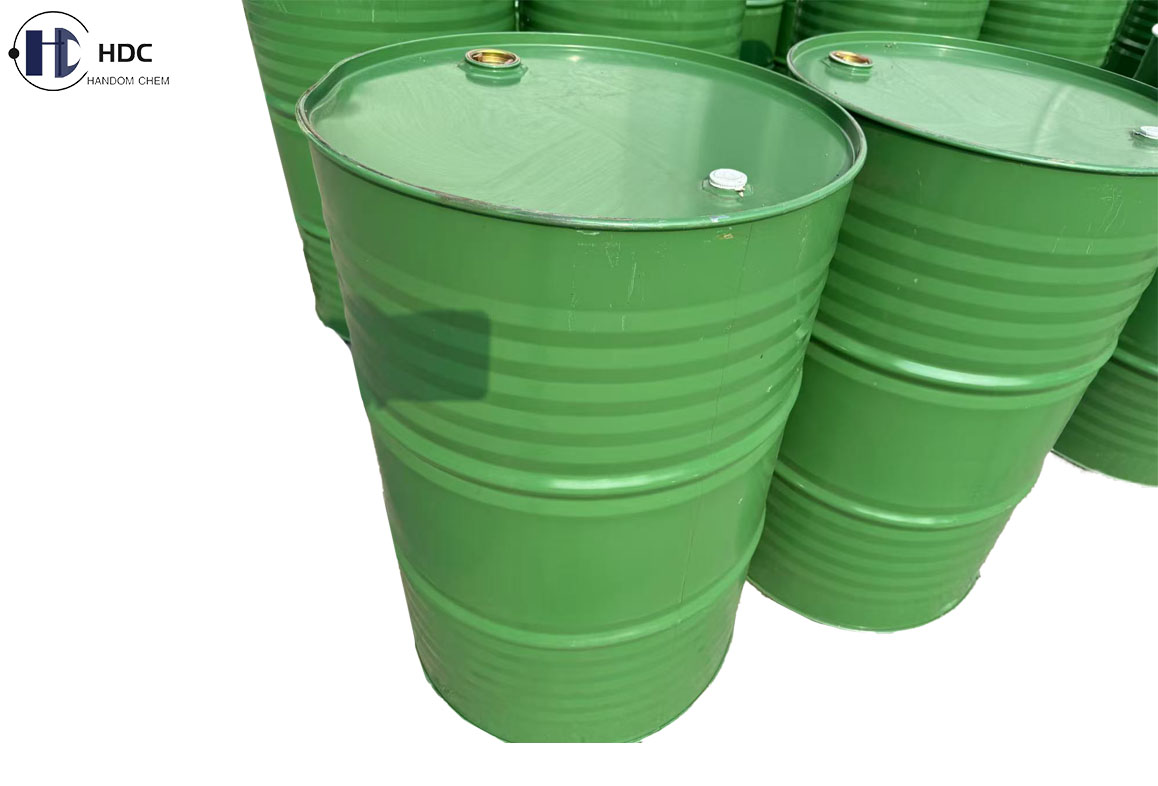
Soybean lecithin powder, also called soya lecithin ……
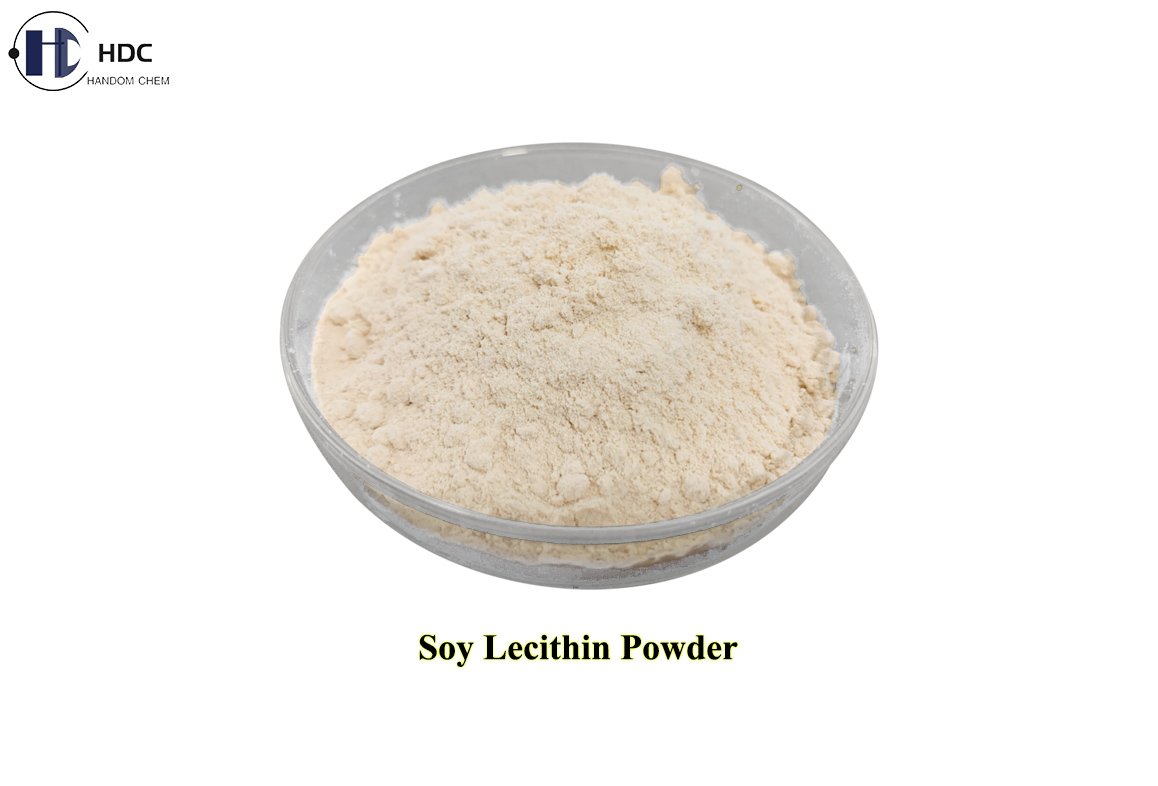
Product Name: Chitosan AzelateGrade: Cosmetic Grade……
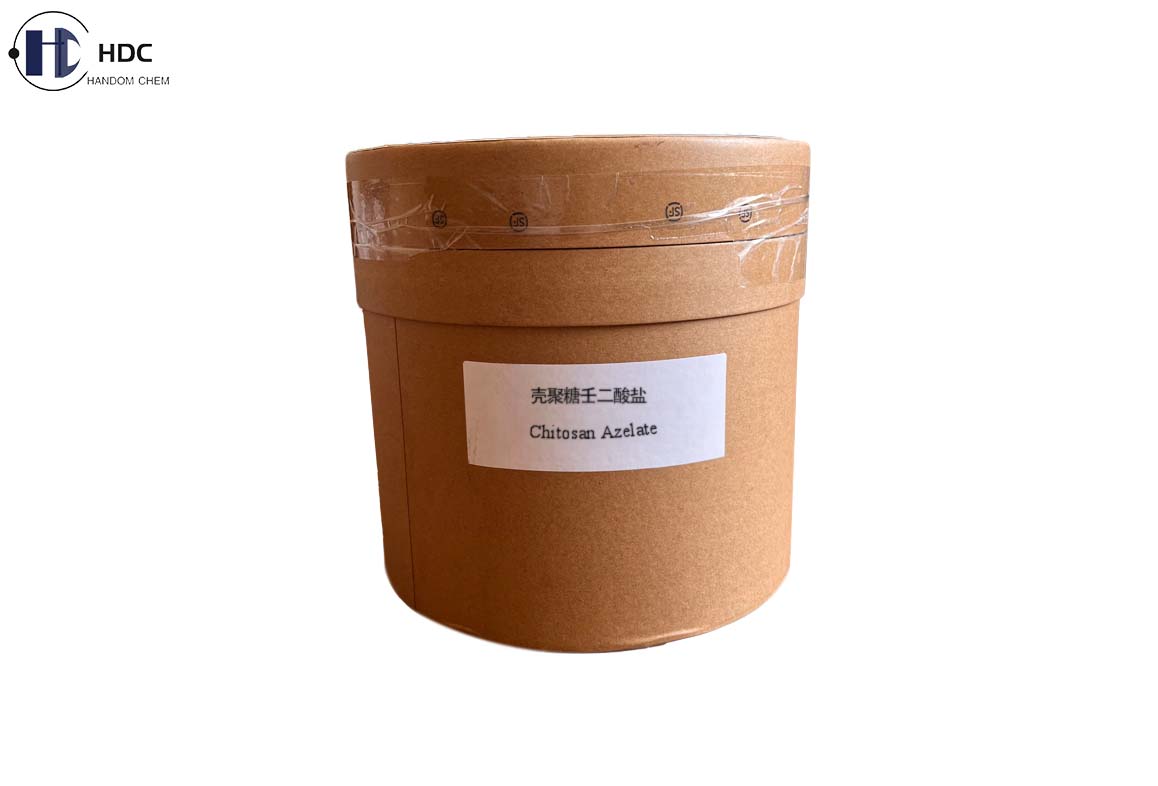
Commodity Name: IscotrizinolChemical Name: Diethylh……
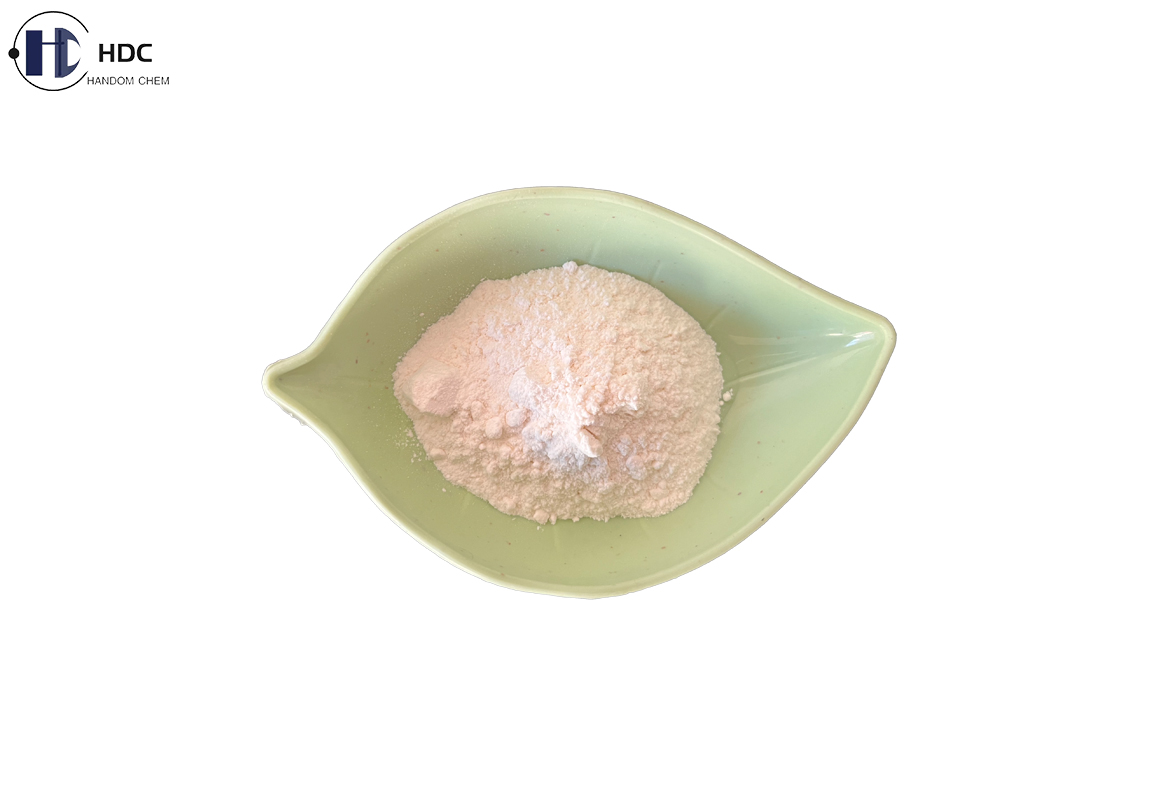
Brief Introduction:
Sunflower pectin is a kind of pectin extracted from sunflower trays, its main component is polygalacturonic acid, with a total galacturonic acid content of about 80%. It also contains a small amount of D-xylose, L-arabinose, D-galactose and L-rhamnose.
Sunflower pectin is a light brown fine powder, odourless, sticky and slippery in taste, and can be dissolved in more than 35 times the amount of water to form a viscous colloidal solution, which is weakly acidic.
Sunflower pectin is one of the important additives in the food industry, has the functions of gelling, thickening, stabilizing and emulsifying. It is widely used in jams, soft candies, sandwich cakes, solid beverages, yogurt products, etc; it can also be used to make vegetable purees, puddings, canned vegetables, etc.
Since pectin is a soluble hemicellulose, it has the effect of lowering blood sugar and blood lipids in the human body, it is one of the excellent raw materials for making health foods for patients with diabetes, obesity, and hyperlipidemia. Therefore, it can also be used for the development and application of health products, which has a good market prospect.
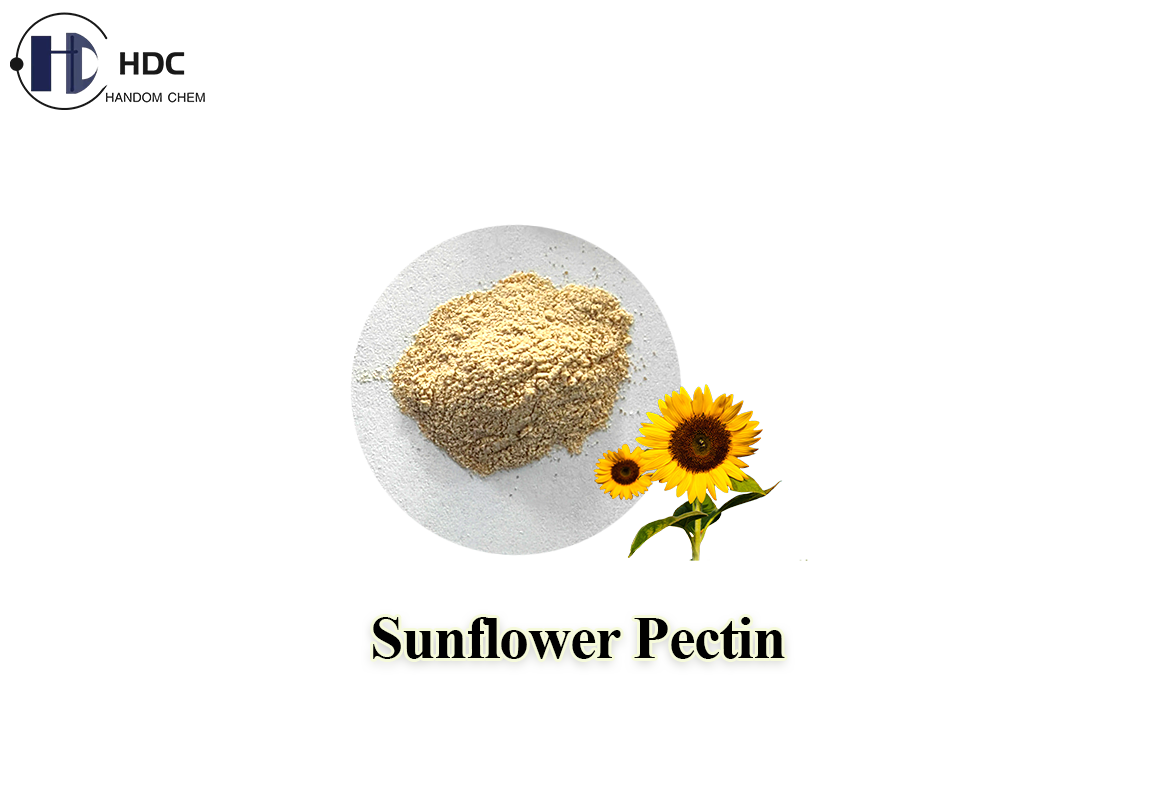
Specifications of our Sunflower Pectin (CSP820):
Appearance
Pale yellow to brown free-flowing powder
Odour/Taste
Neutral
pH Value (2% solution)
2.8 ~ 3.8
Degree of Esterification
28% ~ 35%
Galacturonic Acid
Not less than 65%
Loss on Drying (105℃, 2h)
Not more than 12%
Acid-insoluble Ash
Not more than 1%
Sulfur Dioxide (SO2)
Not more than 10 mg/kg
Free methyl, ethyl and isopropyl alcohol
Not more than 1%
Lead (Pb)
Not more than 2 mg/kg
Total Plate Count
Not more than 1000 CFU/g
Yeasts & Mould
Not more than 100 CFU/g
Coliforms
Negative/g
Escherichia coli
Negative/g
Staphylococcus aureus
Negative/25g
Salmonella
Negative/25g
Specifications of our Sunflower Pectin (CSP855-Y):
Appearance
Pale yellow to brown free-flowing powder
Odour/Taste
Neutral
pH Value (2% solution)
3.0 ~ 4.0
Degree of Esterification
28% ~ 35%
Galacturonic Acid
Not less than 65%
Loss on Drying (105℃, 2h)
Not more than 12%
Acid-insoluble Ash
Not more than 1%
Sulfur Dioxide (SO2)
Not more than 10 mg/kg
Free methyl, ethyl and isopropyl alcohol
Not more than 1%
Lead (Pb)
Not more than 2 mg/kg
Total Plate Count
Not more than 1000 CFU/g
Yeasts & Mould
Not more than 100 CFU/g
Coliforms
Negative/g
Escherichia coli
Negative/g
Staphylococcus aureus
Negative/25g
Salmonella
Negative/25g
Specifications of our Sunflower Pectin (CSP860B):
Appearance
Pale yellow to brown free-flowing powder
Odour/Taste
Neutral
pH Value (2% solution)
4.0 ~ 5.0
Degree of Esterification
28% ~ 36%
Galacturonic Acid
Not less than 65%
Loss on Drying (105℃, 2h)
Not more than 12%
Acid-insoluble Ash
Not more than 1%
Sulfur Dioxide (SO2)
Not more than 10 mg/kg
Free methyl, ethyl and isopropyl alcohol
Not more than 1%
Lead (Pb)
Not more than 2 mg/kg
Total Plate Count
Not more than 1000 CFU/g
Yeasts & Mould
Not more than 100 CFU/g
Coliforms
Negative/g
Escherichia coli
Negative/g
Staphylococcus aureus
Negative/25g
Salmonella
Negative/25g
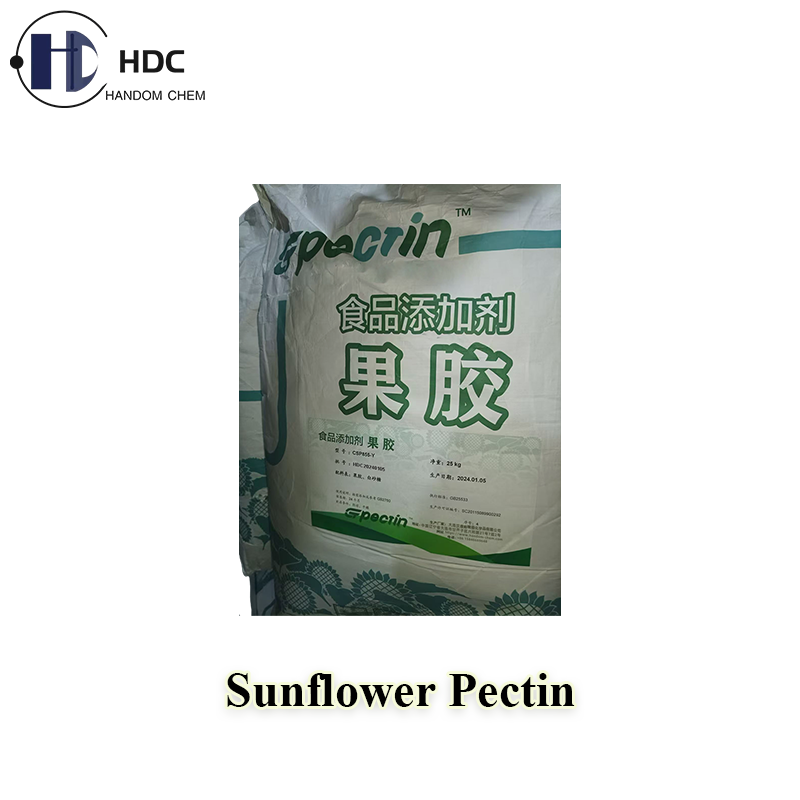
Applications of our Sunflower Pectin:
Since the gel formed by sunflower pectin has good structure, appearance, colour, flavour and other aspects, and has good stability at low pH, it can be used as a thickener, gelling agent and stabilizer, and is widely used in the food industry, and is also used in medicines and cosmetics.
In jam production, the unique gelling properties of sunflower pectin are used to make the jam easy to spread without flowing, not cracked during transportation and storage, and not synergistic, and can solidify within the required time during processing.
In juice processing, the gelling structure of sunflower jelly gel is mechanically destroyed to obtain a persistent oily suspension with fruit particles, soluble solids, and free flow.
Dissolve sunflower pectin in syrup containing sugar, sweeteners and spices such as chocolate or juice, add cold milk that can provide calcium ions required for gelling, and mix to make cold solidified milk dessert.
The Uses and Dosages of our Main Models:
1) Sunflower Pectin (CSP820): It is mainly used as a thickening agent in syrup jams.
0.4% ~ 1.0% (Recommended Amount)
2) Sunflower Pectin (CSP855-Y): It is mainly used as a thickening agent in yoghurt.
0.1% ~ 0.4% (Recommended Amount)
3) Sunflower Pectin (CSP860B): It is mainly used as a thickening agent in candy centre.
0.8% ~ 2.0% (Recommended Amount)
★ Notes:
① The above recommended dosage is for reference only, the actual dosage depends on the specific end-use;
② We recommend dissolving pectin in water before adding it to the formula.
Packaging:
500g/Aluminum Foil Bag, 1kg/Aluminum Foil Bag, 25kg/Paper-Plastic Composite Bag or according to the specific requirements from customers.
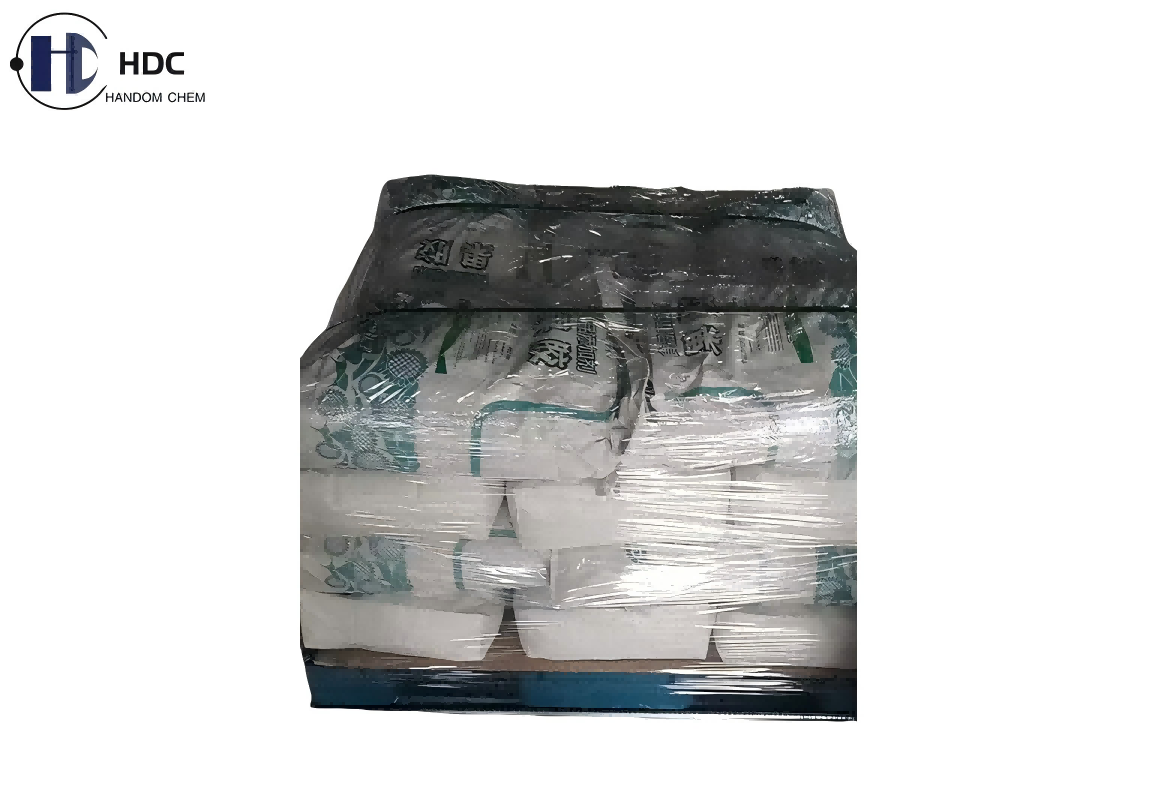
Storage Conditions:
Preserved in unopened original containers in a cool dry place before using; kept away from sunlight, heat and moisture.
Shelf Life:
24 months if stored under above mentioned conditions.